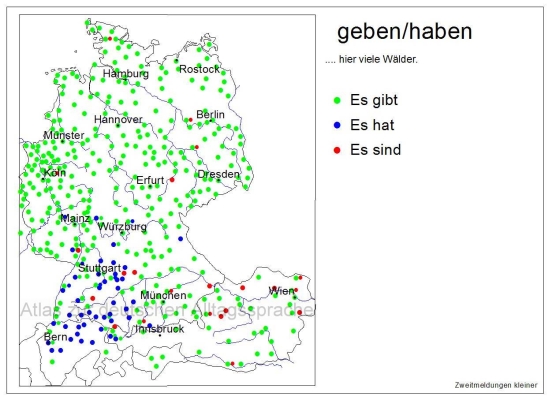I was hoping to have some feedback from some of my more learned Yiddish correspondents before weighing here, but in the absence of prompt replies to my inquiries I’m going to answer from my own incomplete personal knowledge. We definitely don’t use “es gibt...”: that would be the surest giveaway of a German-educated person trying to speak Yiddish. If anything it would have to be “es git…” like the Swiss, but even that does not seem to be idomatic with us. The two forms I know for sure are:
“Es gefinnt sich a wâgen af der gasse…”, where the “ge-“ prefix has somehow become a part of our present tense, and
“Es is (dâ) vorhan a wâgen af der gasse…” where the “dâ” is optional.
I notice from a discussion in another thread (which I can’t recall at the moment) that “findet” is also used in German, and with a bit of the reflexive going on as well, although not identical in form to ours.
If I get some better information on these usages, I’ll post an update.


Es hat ein Auto auf der Strasse.